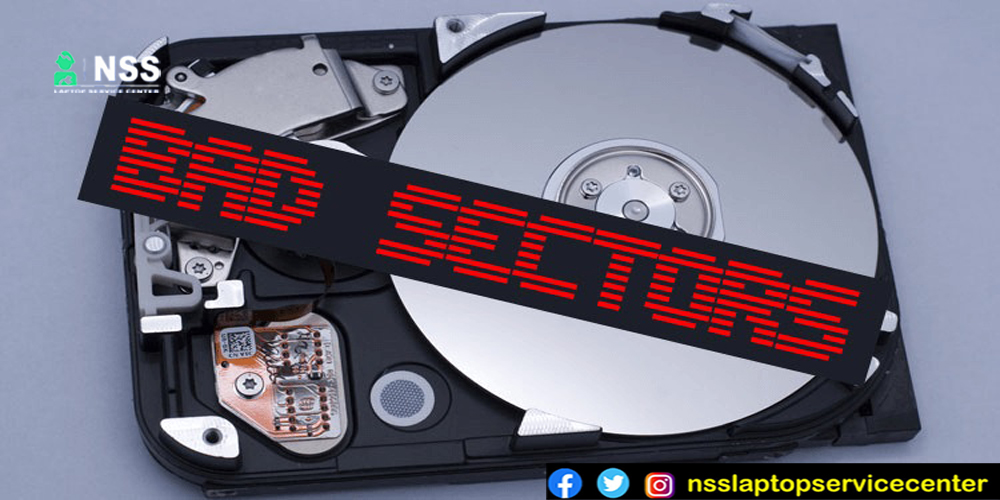
Finding and fixing problematic regions can be done using a variety of techniques.
Utilize Microsoft Windows' built-in Error Checking tool.
Right-click the hard drive by doing a double-click on (My) Computer.
Select Properties from the shortcut menu, then select the Tools tab in the Properties dialogue box.
In the Error-Checking Status section, click Check Now.
How to check bad sector in hard disk Windows 7
Select the Automatically Fix File System Errors and Scan for and Try to Recover Bad Sectors check boxes in the Check Disk dialogue box, and then click Start. For further information, see the Windows help for identifying and fixing disc issues.
Run a thorough test using SeaTools diagnostics for Seagate and Maxtor discs. Use Seatools Enterprise for Seagate SCSI drives.
Drive wiping:
To complete a full zero fill on internal ATA/IDE and SATA drives, use SeaTools for DOS.
This selection will delete ALL data on the drive's partitions.
Please refer to Document ID: 203931 for details on completing a zero-fill.
Conduct a low-level format for SCSI devices using Seatools Enterprise (for Seagate discs).
For external drives: To zero-fill your external drive, use DiscWizard or your external drive management software.
You can delete a OneTouch 4 drive using the Maxtor Manager. For instructions, go to Document ID.
Best software to check lousy sectors in hard disk
You can use the OneTouch Manager to wipe the drive for OneTouch, OneTouch 2, OneTouch 3, and OneTouch 3 small movements.
Please use the Toolkit software to Reset Factory Default for Seagate Pocket Drives.
How to check bad sector in hard disk Windows 10
There are two types of bad sectors: soft bad sectors, which happen when data is miswritten, and hard bad sectors, which occur when the disc is physically damaged. Chkdsk tries to address these issues by mending soft bad sectors and flagging badly bad sectors to prevent their reuse.
How to examine an external hard disc for damaged sectors
CHKDSK /R scans the whole disc surface, sector by sector, to ensure every industry can read correctly. Because it examines the entire surface of the disc rather than simply the areas included in the Table of Contents, a CHKDSK /R takes much longer than /F.
Also Read: Windows 11 Home Vs Pro Which Is Best & Faster
Also Read: Dell Latitude E5270 i5 6th Gen Refurbished Laptop Price
How do I know if I have bad sectors on my Windows 10 hard drive?
Run chkdsk /f in Windows 10 or 11 for the bad sector.
Windows includes a System File Checker tool that enables users to check for corruption in system files and repair damaged files. This tool can also scan every sector on a disk volume to find the problematic industry.
What leads to poor sectors?
A poor sector results from mechanical damage, which is most frequently brought on by a head collision, manufacturing flaw(s), wear and tear, physical stress, unexpected power interruptions, or dust entry. Information security is at risk from bad sectors in terms of data persistence.

Why Do Hard Drives Become Corrupted?
The "You need to format the disc before you can use it" pop-up window may appear on your external hard drive for various reasons. To choose the most effective data recovery strategy, you must at least be aware of the most frequent ones.
Traditional spinning hard drives are intricate electro-mechanical systems that depend on the interplay of delicate read/write heads hovering only a few nanometers above platters moving anywhere between 5,400 and 12,000 RPM. Hard drive corruption and faults can be brought on by anything from normal wear and tear to microscopic particles floating inside the hard disc casing.
Software bugs:
Software bugs can corrupt files stored on a healthy hard drive. In such cases, corruption tends to be limited to the files the buggy software accesses. However, things can become terrible if the buggy software has admin privileges and access to system files.
Damage from viruses:
While most viruses and other types of malware don't corrupt data, others are designed to do so and inflict as much harm as possible by deleting crucial system files or encrypting sensitive information. Although a good antivirus program should be able to stop most viruses, exercising care and using common sense should always be your first defense.
Manufacturer mistakes Even the biggest and most well-known hard drive producers occasionally release a hard disc that needs a firmware upgrade to function correctly. If your hard disc doesn't have an update or hasn't been recalled, it's a good idea to search online. Poor operational circumstances: Hard drives need specific operating circumstances to function effectively.
Also Read: Undeniable Reasons Why Your Dell Laptop Is Not Turning ON
Also Read: Optimizing Windows 10 For Gaming
Conclusion:
I won't say much as the blog has informed you about how to check the bad sector in the hard disk.
It is an easy process, and you can use it for various purposes.
Frequently Asked Questions
Popular Services
- MacBook Battery Replacement Cost
- HP Printer Repair in Delhi NCR
- Dell Laptop Repair
- HP Laptop Repair
- Samsung Laptop Repair
- Lenovo Laptop Repair
- MacBook Repair
- Acer Laptop Repair
- Sony Vaio Laptop Repair
- Microsoft Surface Repair
- Asus Laptop Repair
- MSI Laptop Repair
- Fujitsu Laptop Repair
- Toshiba Laptop Repair
- HP Printer Repair Pune
- Microsoft Surface Battery Replacement
- Microsoft Surface Screen Replacement




